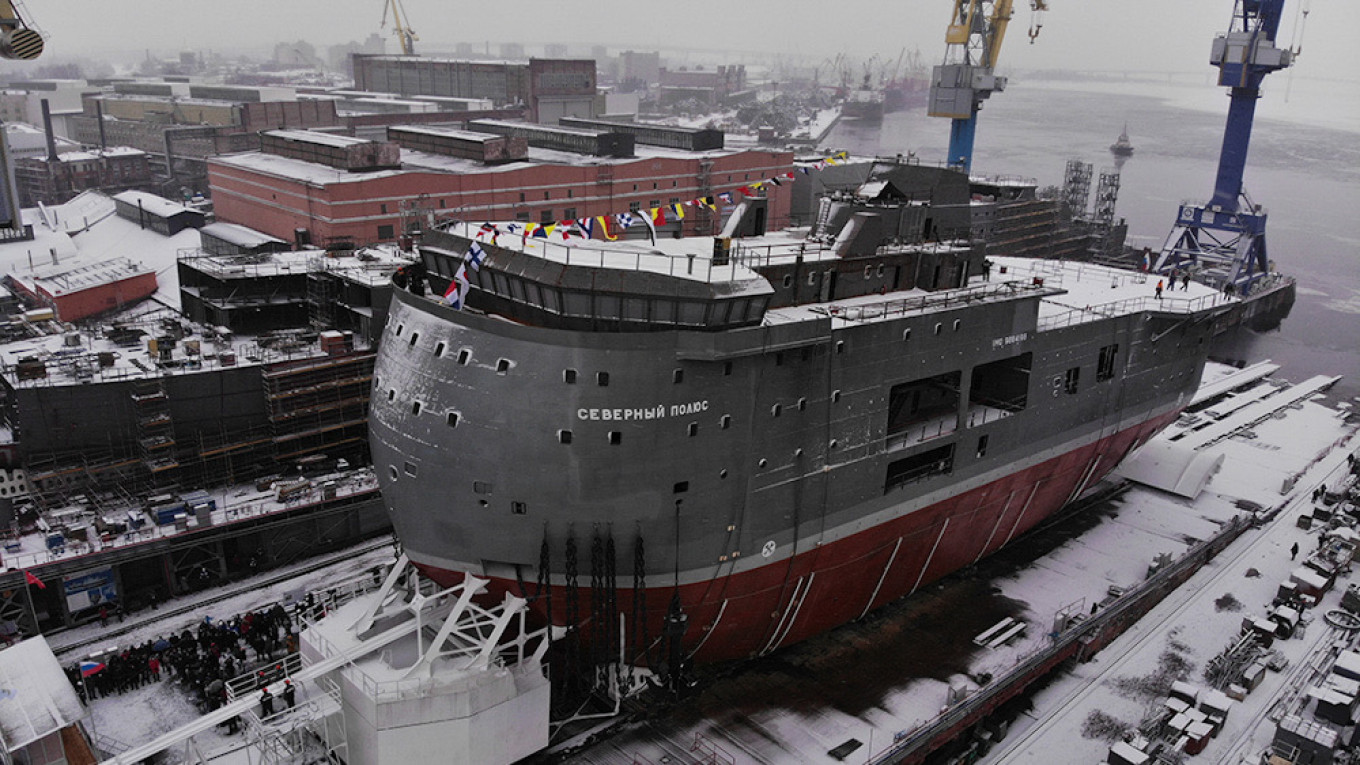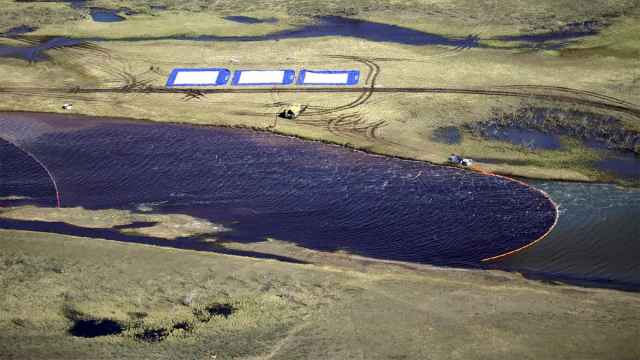Hardly ever before has a ship with such a peculiar shape been rolled out of St. Petersburg’s Admiralty Shipyard. On Dec. 18, the stout, 83-meter-long vessel Severny Polyus, or North Pole, made it onto the waters of the Neva River.
The launch is met with great expectation by Russia’s Arctic research community. Once completed, the vessel will conduct geological, sonar, geophysical and oceanographic surveys in a region of high strategic importance to Moscow.
Among the launch ceremony's attendees was Natalia Radkova, deputy head of Roshydromet, the state meteorological service that operates the Severny Polyus. When the ship is ready for operation, presumably in 2022, the state organization will have at its disposal a unique tool for enhancing its understanding of the Arctic.
“In order to provide high-quality prognosis we absolutely need constant data from the central parts of the Arctic. It is of great importance that researchers soon can get these data while staying onboard a ship in comfortable conditions and not in a tent on the ice,” the meteorological organization said in a statement.
The Severny Polyus will house a crew of 14 to 34 researchers and will be equipped with 15 labs for year-round work. It will be able to navigate light ice cover without icebreaker assistance and drift autonomously in remote Arctic waters for about two years.
But there is still a long way to go before the top Arc8 ice-class ship is ready to take researchers onboard. At the moment, little more than the hull lies on the Neva River bank. The interior of the ship is now to be built, including the cabins, electric installations, navigation equipment, pipes and research laboratories, Roshydromet said.
The floating research station is expected to be completed in 2022, during Russia’s two-year rotating chairmanship of the Arctic Council.

History of Arctic research
The Russian Arctic and Antarctic Institute first proposed the construction of a permanent platform to replace the annual drifting stations operated in Arctic waters 14 years ago.
“Since 1937, a total of 40 expeditions have been made, but because of global warming and ice melting in the early 2000s we have been forced to halt the program,” the institute’s director Alexander Makarov said.
“The building of a self-propelled, ice-protected platform allows us to continue the important studies of the Arctic Ocean at high altitudes,” he underlined.
Since 1937
The Soviet Union and later Russia have deployed floating research stations in the Arctic since 1937, with the exception of the years 1991-2003.
Research stations have normally been established on an ice floe in September-October, and about two dozen scientists would spend the winter there to measure climate and weather conditions.
In recent years, it has become more and more difficult to find ice floes solid enough to hold a station due to increasingly warm winters in the region.
The last “real” ice station, “North Pole-40,” was established in October 2012 but had to be evacuated in May 2013, because the ice floe the base was built on began to break apart. The 16 scientists who spent the winter on the floe had to be rescued by a nuclear-powered icebreaker sent out from Murmansk.
Russia did not erect any floating stations in 2013-2014 or in 2014-2015. In April 2015 they established a station called North Pole 2015 that only existed for four months.
A Message from The Moscow Times:
Dear readers,
We are facing unprecedented challenges. Russia's Prosecutor General's Office has designated The Moscow Times as an "undesirable" organization, criminalizing our work and putting our staff at risk of prosecution. This follows our earlier unjust labeling as a "foreign agent."
These actions are direct attempts to silence independent journalism in Russia. The authorities claim our work "discredits the decisions of the Russian leadership." We see things differently: we strive to provide accurate, unbiased reporting on Russia.
We, the journalists of The Moscow Times, refuse to be silenced. But to continue our work, we need your help.
Your support, no matter how small, makes a world of difference. If you can, please support us monthly starting from just $2. It's quick to set up, and every contribution makes a significant impact.
By supporting The Moscow Times, you're defending open, independent journalism in the face of repression. Thank you for standing with us.
Remind me later.






